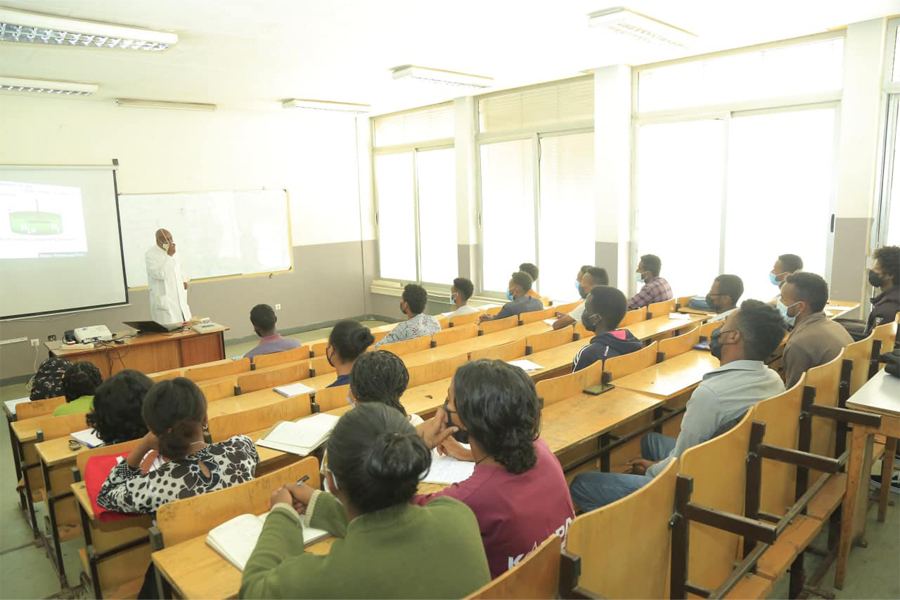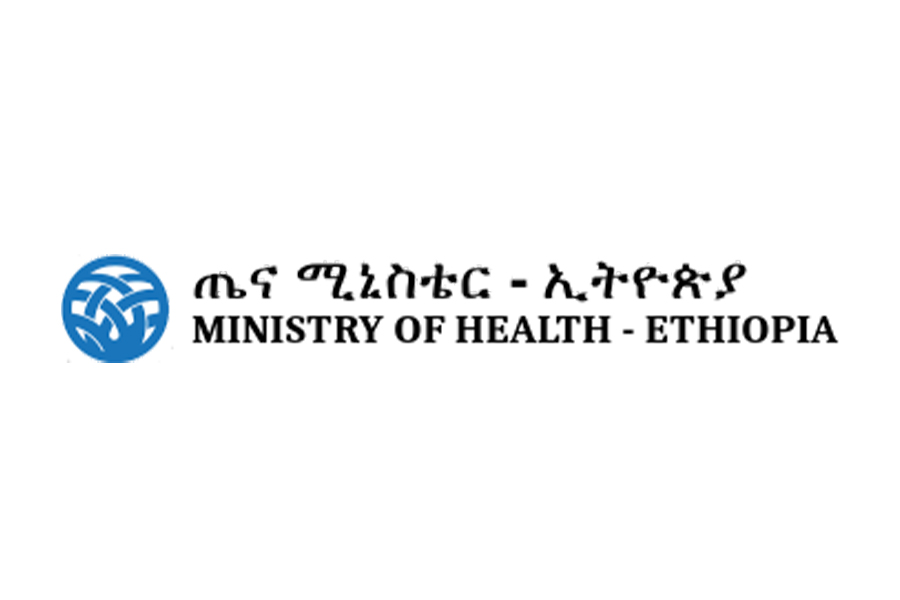
Viewpoints | Aug 13,2022
Aug 25 , 2024
By Geremew Milkias
Ethiopia's agriculture sector is indeed the spine of its economy, but it is increasingly challenged by a confluence of factors - from the harsh realities of climate change and natural disasters to civil unrest and a rapidly growing population - that threaten its viability and, by extension, the country's economic stability. Climate change is not a distant threat; it is a present reality with the potential to erode Ethiopia's GDP substantially, exacerbating poverty and undermining food security.
A recent "Country Climate & Development Report" from the World Bank paints a sobering picture of climate change's impact, which could lead to an annual GDP loss of between one percent and 1.5pc, potentially soaring to five percent by the 2040s. If this is to happen, poverty across the country will deepen. With a growing population, the pressure on the agriculture sector to produce essential goods sustainably is mounting. Compounding this crisis are global events like the Russian war in -Ukraine, which disrupted grain seed transport and worsened food shortages.
Several irrigation schemes are struggling or falling short, often due to design flaws, implementation problems, or operational inefficiencies. These frequently arise from unreliable hydrological data, poorly designed infrastructure, rising construction costs, and delays in project completion. Inadequate community participation and exclusion from management decisions stymie small-scale irrigation efforts. Experts are calling for an encompassing development approach that weaves together technical, socio-economic, and environmental considerations.
Shockingly, only about five percent of Ethiopia's potential irrigable land is in use, a tiny fraction of the five million hectares available.
In contrast, advanced economies are harnessing cutting-edge technologies like precision farming to improve record-keeping, and blockchain for food tracing and supply chain efficiency. The deployment of artificial intelligence (AI) is revolutionising agriculture by monitoring plant health, soil conditions, temperature, and humidity. The livestock sector is getting a tech upgrade too, with the "connected cow" concept, using wearable sensors to track daily activities and health, enabling swift decision-making.
Countries like the Netherlands are showcasing the future with high-tech greenhouses employing vertical farming, precision agriculture, and robotic harvesting—proof of how technology can transform farming.
Developing countries are not left behind. Initiatives like the CropWatch Innovative Cooperation Programme under the UN Commission on Science & Technology for Development are making strides in agricultural monitoring, working towards the Sustainable Development Goal (SDG) of zero hunger.
Fourteen African countries, including Kenya, are participating in this revolution, employing technology for drought monitoring even as far as Syria. Such projects are not only inspirational. They are essential for economies like Ethiopia’s, which heavily depend on agriculture and are most vulnerable to climate change. By integrating satellite technologies that are already in place, Ethiopia could boost agricultural productivity.
Agriculture, primarily reliant on rain, struggles with financing its commercialisation due to limits in mechanisation and irrigation. However, the innovation fund for agricultural mechanisation targeting smallholder farmers represents a hopeful leap forward, shifting from fragmented farming to commercially viable large-scale operations, with farmers organised into clusters. Recent studies reveal that cluster farming can lead to improved livelihoods for rain-fed farmers.
The Agricultural Transformation Institute (ATI) recommends that national irrigation schemes start collecting fees from end-users, paving the way toward self-financing models that replenish a national irrigation fund. Coordinating efforts across various ministries is crucial to achieving food self-sufficiency and elevating Ethiopia to middle-income status. The Disaster Risk Management Commission is stepping up, leveraging technology to monitor frequent droughts and weather conditions, offering early warnings and solutions to avert crises.
Expanding index insurance can empower farmers to bounce back from shocks, and collaborating with the Ministry of Innovation & Technologies to adopt diverse technologies is essential for emulating the best practices of leading agricultural economies.
PUBLISHED ON
Aug 25,2024 [ VOL
25 , NO
1269]


Viewpoints | Aug 13,2022

Radar | Mar 16,2024

Agenda | Aug 25,2024

Fortune News | Dec 01,2024

Fortune News | Jul 13,2020

Fortune News | Jun 29,2025

Radar | Jun 22,2024

Editorial | Jul 17,2022

Fortune News | Oct 06,2024

Fortune News | Nov 17, 2024

Photo Gallery | 174029 Views | May 06,2019

Photo Gallery | 164254 Views | Apr 26,2019

Photo Gallery | 154358 Views | Oct 06,2021

My Opinion | 136611 Views | Aug 14,2021
Editorial | Oct 11,2025

Dec 22 , 2024 . By TIZITA SHEWAFERAW
Charged with transforming colossal state-owned enterprises into modern and competitiv...

Aug 18 , 2024 . By AKSAH ITALO
Although predictable Yonas Zerihun's job in the ride-hailing service is not immune to...

Jul 28 , 2024 . By TIZITA SHEWAFERAW
Unhabitual, perhaps too many, Samuel Gebreyohannes, 38, used to occasionally enjoy a couple of beers at breakfast. However, he recently swit...

Jul 13 , 2024 . By AKSAH ITALO
Investors who rely on tractors, trucks, and field vehicles for commuting, transporting commodities, and f...

Oct 11 , 2025
Ladislas Farago, a roving Associated Press (AP) correspondent, arrived in Ethiopia in...

Oct 4 , 2025
Eyob Tekalegn (PhD) had been in the Governor's chair for only weeks when, on Septembe...

Sep 27 , 2025
Four years into an experiment with “shock therapy” in education, the national moo...

Sep 20 , 2025
Getachew Reda's return to the national stage was always going to stir attention. Once...

Oct 12 , 2025
Tomato prices in Addis Abeba have surged to unprecedented levels, with retail stands charging between 85 Br and 140 Br a kilo, nearly triple...

Oct 12 , 2025 . By BEZAWIT HULUAGER
A sweeping change in the vehicle licensing system has tilted the scales in favour of electric vehicle (EV...

Oct 12 , 2025 . By NAHOM AYELE
A simmering dispute between the legal profession and the federal government is nearing a breaking point,...

Oct 12 , 2025 . By NAHOM AYELE
A violent storm that ripped through the flower belt of Bishoftu (Debreziet), 45Km east of the capital, in...